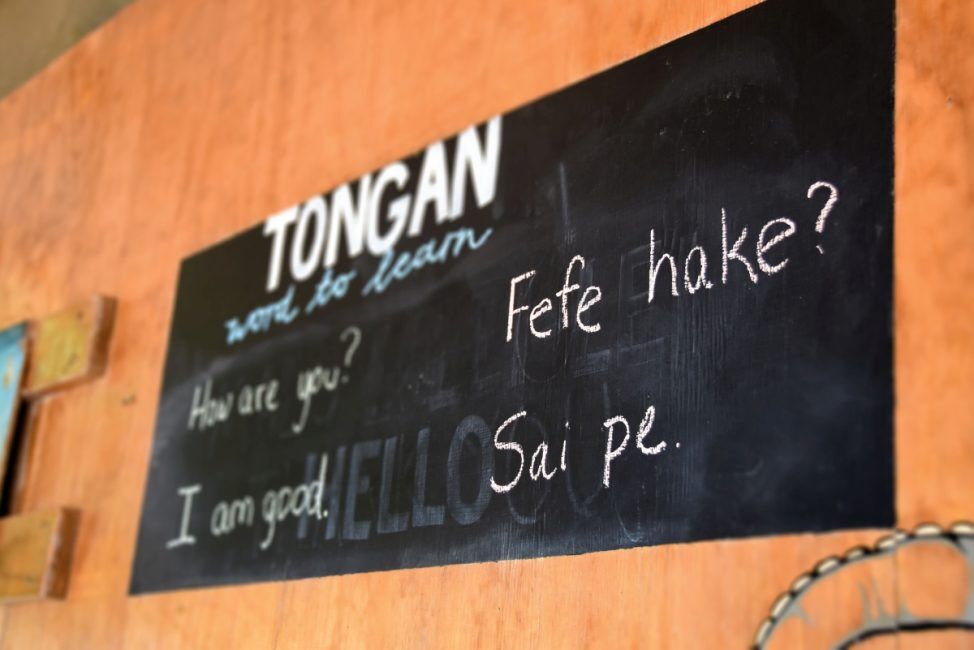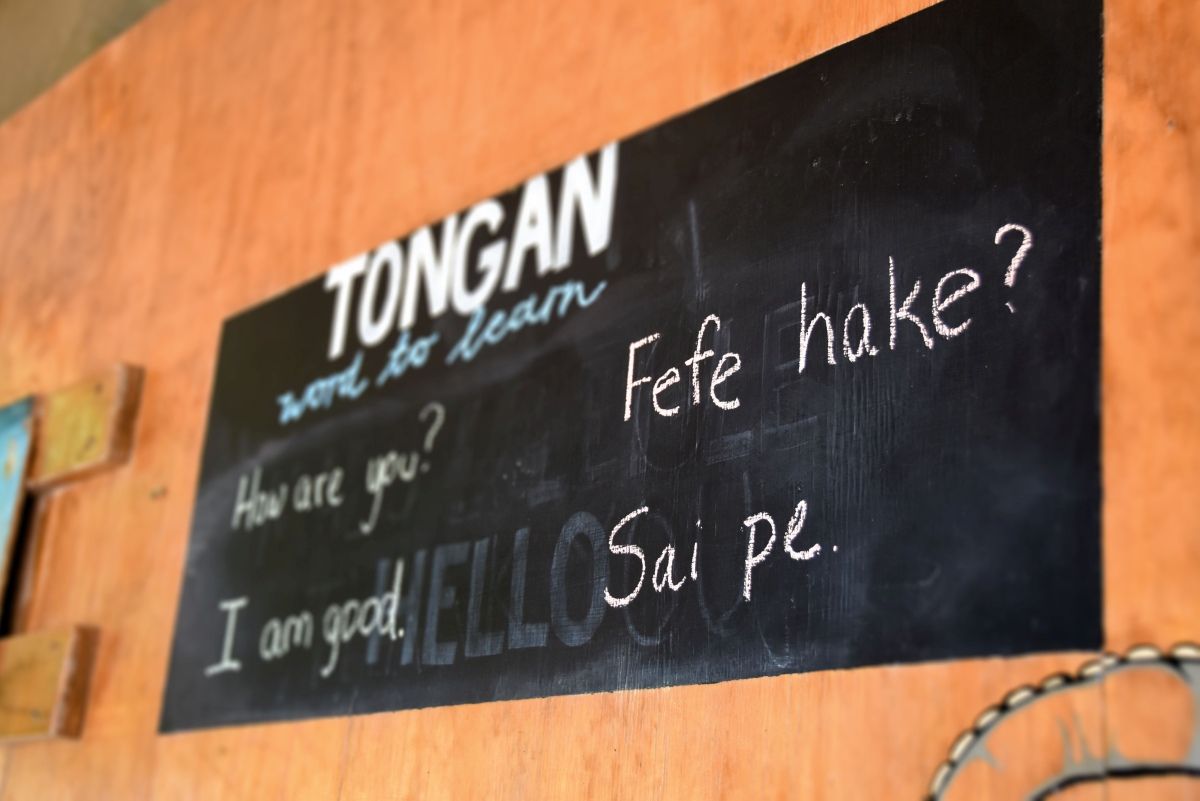Learn Some Words in Lea Faka-Tonga!
Travel is all about discovering new cultures and the Tongan culture is certainly a fascinating one! One of the basic ways to start immersing in the local culture is to speak the local language. While you can get by with English in Tonga, all Tongans speak Tongan or “Lea Faka-Tonga” as a first language. It’s always fun to learn and speak some basic words in Tongan. Give it a try with these words listed in the Tongan words you need to know when visiting Tonga!
For more language talk, take a look at The Guide to the Tongan Language. Plus, wise up on the Tongan culture with The Guide to the Tongan Culture for Travellers.
1. Mālō e Lelei! – Hello!
Mālō e lelei means “Hello” in Tongan and is the Tongan word you’re bound to hear the most of a trip to The Kingdom.
2. Mālō ‘Aupito! – Thank You Very Much
Mālō ‘aupito means “thank you very much” and, if you’re a polite tourist, it’s a word that you will be using a lot in Tonga. You can also say “mālō” for a simple” thank you”. It is often met with a “‘lo mālō”, which means “you’re welcome”.
3. Fale – House
If you’re staying at an island resort, you’re bound to be staying in a “fale”. This is a house in Tongan and, in the context of resorts, it’s your stand-alone cabin for sleeping in. Fale is a word seen at the beginning of a few words in Tongan as a word for different types of houses, for instance, the church is “fale lotu”, the hospital is “fale mahaki” and a restaurant is “fale kai”.
4. ‘Io / Ikai – Yes / No
‘Io means “yes” and ikai means “no” – simple!
5. Kai – Food / Eat
Kai is the word for eating or food. Personally, we think it’s the most important word for anywhere in the world! Check out some “kai” worth trying in the 10 Unique Foods in Tonga You Have to Try.
6. Inu – Drink
On a similar note to kai, inu means “drink”! Check out some “inu” to try in the 10 Drinks in Tonga You Have to Try.
7. Fefe Hake? – How Are You?
Sai pe! – Fine/Ok!
A positive way to start some small talk in Tongan is to say “Fefe hake?” which means “How are you?” The usual response is “Sai pe!” which means “Fine”/”Good”/”Ok”.
8. ‘Ofa Atu – With Love
If you want to leave on a positive farewell, a common way to do so in Tonga is with an “‘Ofa atu” literally meaning “With love”.
9. ‘Alu ā / Nofo ā – Goodbye
The more formal way of saying goodbye gets a little tricky in Tongan, as it depends on a the following factors:
‘Alu ā or Me’a ā – Goodbye (if staying)
Nofo ā – Goodbye (if leaving).
10. Fakamolemole / Kātaki – Please
Continue to be a polite tourist by saying “please” when asking for something in Tonga. There are two local words for please; “kātaki” is the most common, while “fakamolemole” is a little more dramatic.
11. Fale Koloa – Grocery Store
Another type of fale that you’ll need to know is the fale koloa. Fale koloa refers to the small convenience stores seen around Tonga, typically with metal grates over the windows. Learn more about shopping at fale koloa in The Guide to Supermarkets & Food Shopping in Tonga.
12. Palangi – White Person
A palangi is quite simply a “white person”, usually referring to foreigners/tourists/white people/Europeans.
13. Kava
Kava is the national drink of Tonga and a narcotic drink enjoyed across the South Pacific Islands. Tonga is a significant producer of the pepper plant that makes the roots from which kava is made from. The drink itself is ground-up roots mixed with water. Traditionally, only the men drink kava with a woman blessing the kava before it is drunk. Learn more about the tradition in Where to Try Kava in Tonga.
14. Palasi – Palace
In the country of the South Pacific’s only monarchy, it’s only fitting to learn the word for “palace” in Tongan. It’s “palasi“! Easy!
15. Taha, Ua, Tolu – One, Two Three
… Fā, nima, ono, fitu, valu, hiva, hongofulu! Now you know how to count from one to ten in Tongan! However, these are only the numbers for the standard numbering system in Tonga. There are different numbering systems used for different items, for instance, there are different numbers for counting coconuts than there are for counting fish.
More About Tongan Words and Culture
That’s it for our list of the Tongan words to learn when visiting Tonga. For more on the subject, take a look at the following:
- What is the Tonga Language?
- Visiting Tonga: Main Island Vs. Outer Islands
- The Guide to the Religions in Tonga
Finally, start planning your own tropical getaway with The Complete Travel Guide to Tonga and the 30 Tips for Travelling in Tonga.
Author
Robin (Lopini) C.
This article was reviewed and published by Robin, the co-founder of Tonga Pocket Guide. He has lived, worked and travelled across 16 different countries before settling in the South Pacific, so he knows a thing or two about planning the perfect trip in this corner of the world. Robin works and consults regularly with the Ministry of Tourism of Tonga. Robin is also the co-founder of several other South Pacific travel guides and is a regular host of webinars with the South Pacific Tourism Organisation.


